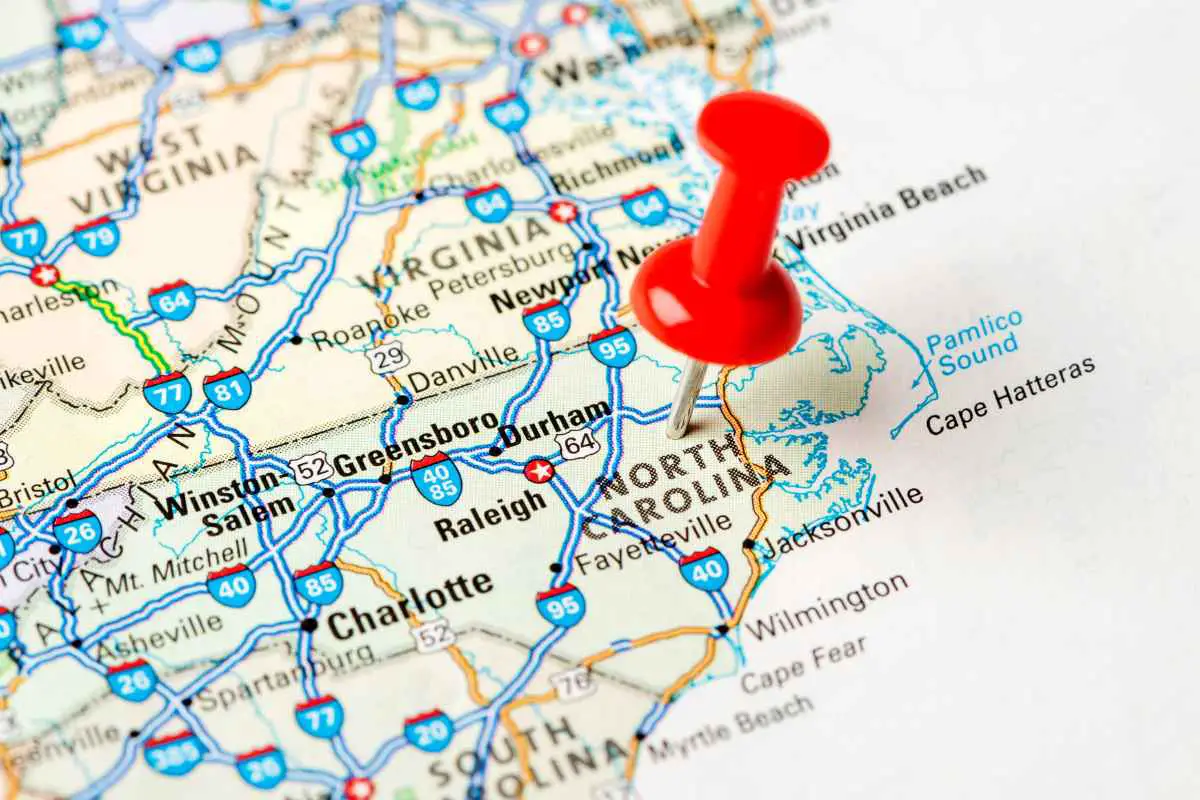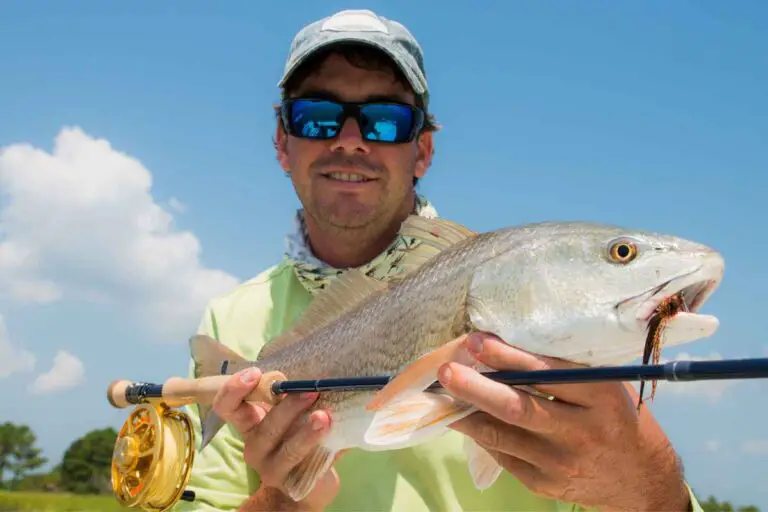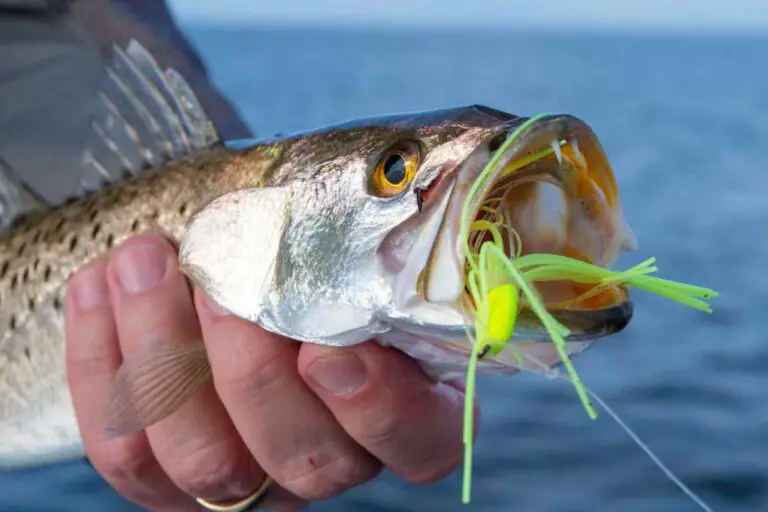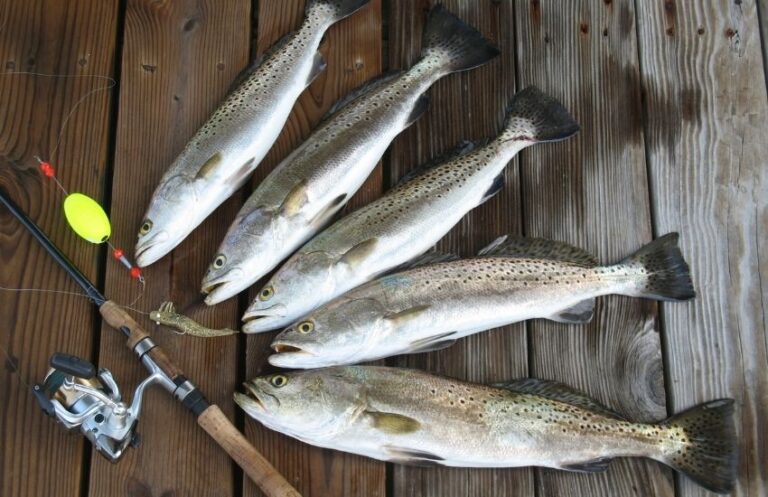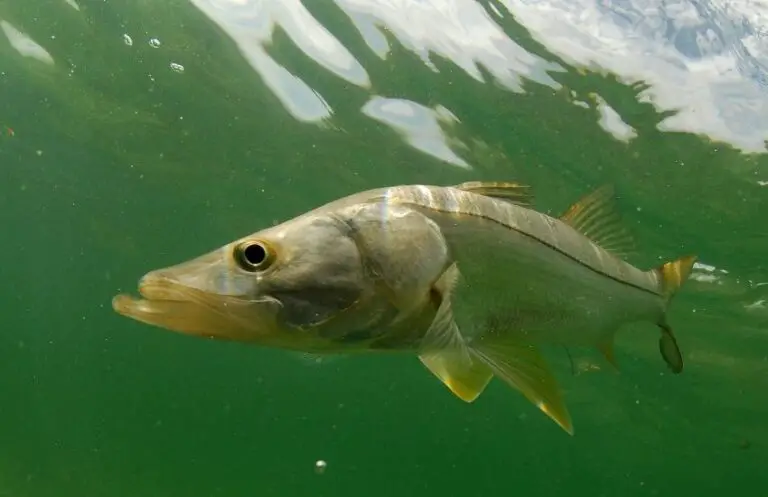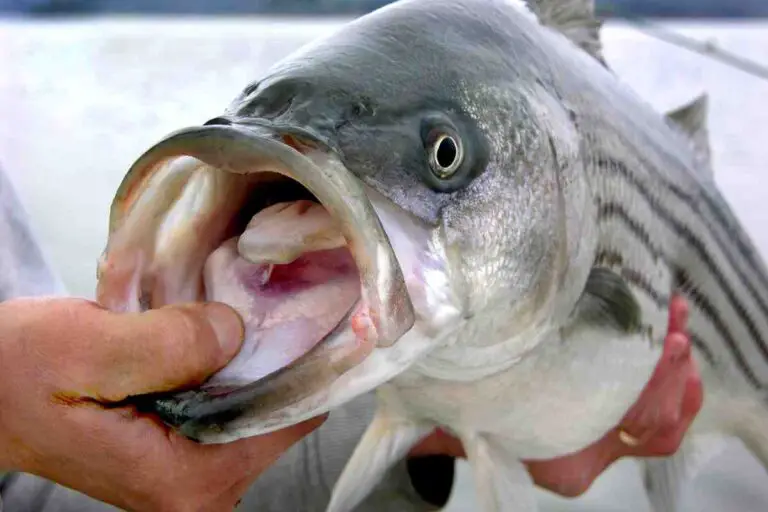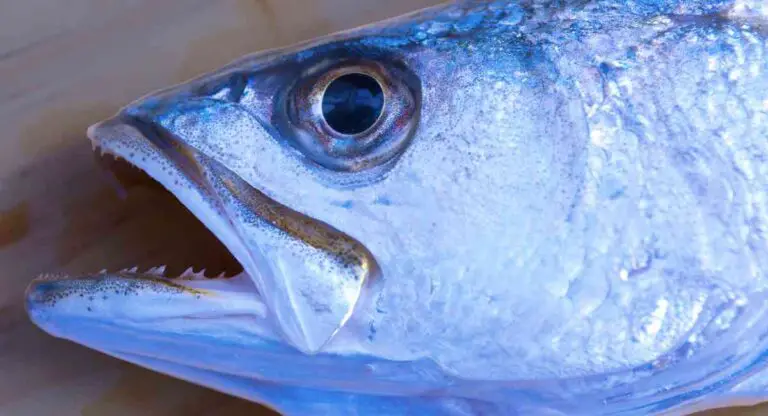North Carolina Fishing License: Get Legal in a Few Easy Steps
Estimated reading time: 12 minutes
Are you planning a fishing adventure in North Carolina? This article aims to provide you with simple and straightforward information on how to obtain fishing licenses in the state.
- A valid NC fishing license is a requirement for anyone who wishes to engage in fishing activities within North Carolina’s waters, regardless of age or residency status.
- There are different types of fishing licenses available for purchase, catering to various fishing preferences such as freshwater, saltwater, and specific fishing trips. Also, special discounted licenses are available for disabled individuals and disabled veterans, among others.
- The cost of fishing licenses in North Carolina varies depending on factors such as age, residency status, and license type. It’s important to note that certain types of fishing may require additional endorsements or tags.
- To obtain a fishing license, you can purchase it online or visit authorized retailers in person. It’s worth noting that some licenses have limited validity periods, while others offer longer durations.
By continuing to read, you’ll gain all the necessary information to ensure your fishing trip in North Carolina is both successful and legal. Discover the right license for your needs, understand the associated costs, and learn where and how to obtain it conveniently.
Types of North Carolina Fishing Licenses
In North Carolina, you’ll find a range of fishing licenses tailored to your preferences, including the Coastal Recreational Fishing License (CRFL) and combination hunting and fishing licenses.
Whether you opt for a 10-day, annual, or lifetime license, being familiar with the specific requirements for each type will ensure you’re fully equipped for a rewarding fishing trip on the water.
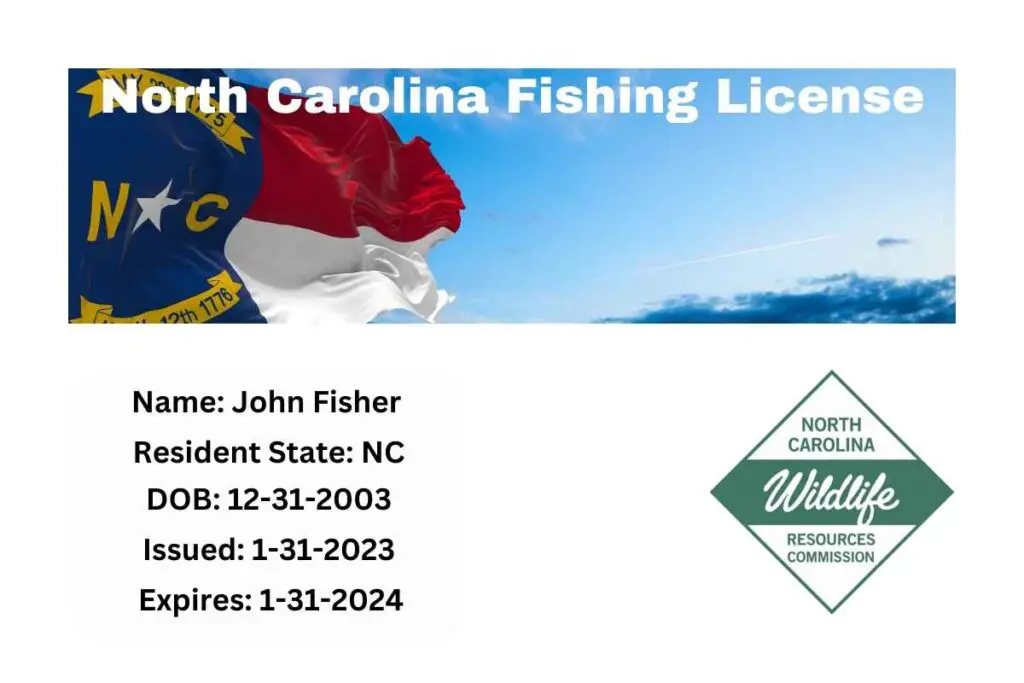
North Carolina Fishing License Chart With Fees
| License Type (Value) | License Type | Desciption | Resident Fee | Non-Resident Fee |
|---|---|---|---|---|
| Short-Term License | 10-Day Coastal Recreational Fishing | Allows fishing in coastal and joint waters and not in inland waters. | $5.00 | $10.00 |
| Annual License | Coastal Recreational Fishing (Valid for 12 months from the date of purchase) | Allows fishing in coastal and joint waters and not in inland waters. | $15.00 | $55.00 |
| Lifetime License | Adult Coastal Recreational Fishing (Age 12+) | Allows fishing in coastal and joint waters and not in inland waters. | $250.00 | $500.00 |
| Lifetime License | Youth Coastal Recreational Fishing (Ages 1-11) | Allows fishing in coastal and joint waters and not in inland waters. | $150.00 | $150.00 |
| Lifetime License | Infant Coastal Recreational Fishing (Under Age 1) | Allows fishing in coastal and joint waters and not in inland waters. | $100.00 | $100.00 |
| Lifetime License | Senior Coastal Recreational Fishing (Age 65+) | Allows fishing in coastal and joint waters and not in inland waters. | $15.00 | N/A |
| Lifetime License | Disabled Veteran Coastal Recreational Fishing | Allows fishing in coastal and joint waters and not in inland waters for residents who are 50% or more disabled veterans as determined by the Veterans Administration. | $10.00 | N/A |
| Lifetime License | Totally Disabled Coastal Recreational Fishing | Allows fishing in coastal and joint waters and not in inland waters for residents who are totally disabled as determined by the Social Security Administration. | $10.00 | N/A |
| UNIFIED HUNTING, INLAND | AND COASTAL RECREATIONAL FISHING LICENSES | |||
| Annual Unified License | Unified Sportsman/Coastal Recreational Fishing | Statewide hunting, inland and coastal recreational fishing for residents during a license term. Includes the privileges of hunting for big game, hunting on game lands, hunting for waterfowl (does not include federal duck stamp), fishing in designated Public Mountain Trout Waters, fishing in trout waters on game lands, and fishing in joint waters. | $55.00 | N/A |
| + Additional Certification | HIP Certification (Federal Requirement) | Needed to hunt migratory game birds (waterfowl, doves, rails, gallinule, snipe and woodcock) | FREE | N/A |
| Annual Unified License | Unified Inland/Coastal Recreational Fishing | Statewide inland and coastal recreational fishing for residents during a license term. Includes the privileges of fishing in designated Public Mountain Trout Waters, fishing in trout waters on game lands, and fishing in joint waters. | $35.00 | N/A |
| Annual Unified License | Unified Subsistence Inland/Coastal Recreational Fishing | Statewide basic inland and coastal recreational fishing for residents who receive Medicaid, Food Stamps, or Work First Family Assistance through the County Department of Social Services. Includes fishing in joint waters. It does not include fishing in designated Public Mountain Trout Waters and fishing in trout waters on game lands. License Waiver can be obtained through the County Department of Social Services upon request. | FREE | N/A |
| + Additional Privilege License | Special Trout Fishing | Needed to fish in designated mountain trout waters. Covers trout fishing on game lands. | $10.00 | N/A |
| HUNTING AND FISHING | ||||
| Lifetime Unified License | Adult Sportsman/Coastal Recreational Fishing (ages 12+) | $675.00 | $1,350.00 | |
| + Additional Privilege License | Bear/Wild Boar Hunting | Needed by non-residents, in addition to the lifetime sportsman license, to hunt bear or wild boar. | N/A | $125.00 |
| + Additional Certification | HIP Certification (Federal Requirement) | Needed to hunt migratory game birds (waterfowl, doves, rails, gallinule, snipe and woodcock). Valid for 12 months from date of purchase. | FREE | FREE |
| Lifetime Unified License | Youth Sportsman/Coastal Recreational Fishing (Ages 1-11) | Statewide hunting, inland and coastal recreational fishing. Includes hunting for big game, hunting on game lands, hunting for waterfowl (does not include federal duck stamp), fishing in designated Public Mountain Trout Waters, fishing in trout waters on game lands, and fishing in joint waters. | $450.00 | $450.00 |
| Lifetime Unified License | Infant Sportsman/Coastal Recreational Fishing (Under Age 1) | Statewide hunting, inland and coastal recreational fishing. Includes hunting for big game, hunting on game lands, hunting for waterfowl (does not include federal duck stamp), fishing in designated Public Mountain Trout Waters, fishing in trout waters on game lands, and fishing in joint waters. | $275.00 | $275.00 |
| Lifetime Unified License | Senior Sportsman/Coastal Recreational Fishing (Age 65+) | Statewide hunting, inland and coastal recreational fishing. Includes hunting for big game, hunting on game lands, hunting for waterfowl (does not include federal duck stamp), fishing in designated Public Mountain Trout Waters, fishing in trout waters on game lands, and fishing in joint waters. | $30.00 | N/A |
| + Additional Certification | HIP Certification (Federal Requirement) | Needed to hunt migratory game birds (waterfowl, doves, rails, gallinule, snipe and woodcock). Valid for 12 months from date of purchase. | FREE | N/A |
| Lifetime Unified License | Disabled Veteran Sportsman/Coastal Recreational Fishing | Statewide hunting, inland and coastal recreational fishing for residents who are 50% or more disabled veterans as determined by the Veterans Administration. Includes hunting for big game, hunting on game lands, hunting for waterfowl (does not include federal duck stamp), fishing in designated Public Mountain Trout Waters, fishing in trout waters on game lands, and fishing in joint waters. | $110.00 | N/A |
| + Additional Certification | HIP Certification (Federal Requirement) | Needed to hunt migratory game birds (waterfowl, doves, rails, gallinule, snipe and woodcock). Valid for 12 months from date of purchase. | FREE | N/A |
| Lifetime Unified License | Totally Disabled Sportsman/Coastal Recreational Fishing | Statewide hunting, inland and coastal recreational fishing for residents who are totally and permanently disabled as determined by the Social Security Administration. Includes hunting for big game, hunting on game lands, hunting for waterfowl (does not include federal duck stamp), fishing in designated Public Mountain Trout Waters, fishing in trout waters on game lands, and fishing in joint waters. | $110.00 | N/A |
| + Additional Certification | HIP Certification (Federal Requirement) | Needed to hunt migratory game birds (waterfowl, doves, rails, gallinule, snipe and woodcock). Valid for 12 months from date of purchase. | FREE | N/A |
| FISHING | ||||
| Lifetime Unified License | Inland/Coastal Recreational Fishing | Statewide inland and coastal recreational fishing. Includes fishing in designated mountain trout waters and fishing in joint waters. | $450.00 | N/A |
| Lifetime Unified License | Legally Blind Inland/Coastal Recreational Fishing | Statewide fishing in all public waters for residents who have been certified by the Dept. of Health and Human Services as being legally blind. Includes fishing in designated Public Mountain Trout Waters and fishing in trout waters on game lands. | FREE | N/A |
| Lifetime Unified License | Adult Care Home Inland/Coastal Recreational Fishing | Statewide fishing in all public waters for residents of an adult care home. Includes fishing in designated Public Mountain Trout Waters and fishing in trout waters on game lands. License valid during time of residency at adult care facility. | FREE | N/A |
Types of North Carolina Fishing Licenses
Saltwater Fishing Licenses
- Coastal Recreational Fishing License (CRFL): Required for saltwater fishing in coastal waters, including sounds, coastal rivers, and the Atlantic Ocean.
Freshwater Fishing Licenses
- Inland Fishing License: Required for freshwater fishing in inland waters such as lakes, ponds, and rivers.
- Unified Inland/Coastal Recreational Fishing License: Allows fishing in both inland and coastal waters, including freshwater and saltwater fishing.
- Short-Term Inland Fishing License: Allows fishing in inland waters for a specified 10-day period.
- Youth Inland Fishing License (ages 16-17): Required for residents and non-residents aged 16-17 to fish in inland waters.
Remember, possessing the appropriate fishing license is essential to ensure compliance with North Carolina’s fishing regulations and enjoy fishing legally and responsibly in saltwater and freshwater environments.
Resident vs Non Resident Licenses
The main difference between resident and non-resident fishing licenses in North Carolina lies in the eligibility and pricing.
Residents, who have established their permanent residence in the state for a certain period, have access to a wider range of license options for hunting, fishing, and trapping. They can take advantage of resident rates, which are typically lower than non-resident fees.
On the other hand, non-residents can still obtain fishing licenses to enjoy fishing in North Carolina, but their options may be slightly more limited, and they are subject to higher non-resident fees.
Here is a list of some of saltwater and freshwater licenses available for both residents and non-residents in North Carolina. Check the North Carolina Fish License Chart above for the complete list.
Residency Definitions and Requirements Simplified
Resident: If you have resided in North Carolina for six months or have established a permanent residence for 60 days, you are considered a resident. Residency can only be claimed in one state.
Students: Nonresident students attending a university, college, or community college in North Carolina may purchase a resident license by showing valid student identification.
Military Stationed In NC: Nonresident members of the U.S. Armed Forces, along with their spouses and children under 18, who are stationed in North Carolina are considered residents for purchasing resident licenses.
Military Stationed Outside NC: Active-duty members of the U.S. Armed Forces stationed outside North Carolina are deemed residents of the state for purchasing short-term and annual hunting, fishing, and trapping licenses.
Nonresident: Anyone who does not live in North Carolina, excluding students and military members, is considered a nonresident.
Annual and Short-Term Licenses
In North Carolina, there are specific differences between annual and short-term fishing licenses.
An annual license provides fishing privileges for a full year from the date of purchase, allowing anglers to enjoy fishing throughout all seasons. On the other hand, short-term licenses are valid for a specified period, such as 10 days, providing a more flexible option for those who may be visiting or planning shorter fishing trips.
Short-term licenses are ideal for individuals who want to experience the thrill of fishing during a specific timeframe without committing to a full-year license.
Whether you choose an annual or short-term license, both options grant you access to the abundant fishing opportunities found in North Carolina’s lakes, rivers, and coastal areas.
Lifetime Licenses
North Carolina presents a fantastic opportunity for avid anglers who wish to enjoy fishing without the hassle of yearly renewals through its lifetime licenses.
These licenses cater to residents of different age groups, including youth, infant, senior, disabled veteran, and adult care home residents, offering various pricing tiers. Additionally, there are special categories for individuals who are legally blind, totally disabled, or disabled veterans.
With a lifetime license, fishing enthusiasts can embark on countless fishing adventures throughout their lives, ensuring uninterrupted access to the state’s abundant fishing opportunities.
Special Licenses and Privileges
North Carolina offers special licenses and certifications to enhance your fishing experience. Here are some important details and options to consider:
Additional Privilege Licenses:
- Special Trout Fishing: This license is necessary to fish in designated mountain trout waters, including trout fishing on game lands.
- Bear/Wild Boar Hunting: Non-residents must obtain this license, in addition to the lifetime sportsman license, to hunt bear or wild boar.
Additional Certifications:
- HIP Certification (Federal Requirement): Hunters targeting migratory game birds, such as waterfowl, doves, rails, gallinules, snipe, and woodcock, need to obtain HIP certification. This certification is valid for 12 months from the date of purchase.
To obtain your fishing license, you can conveniently purchase it online, through Wildlife Resources Commission license agents, or at any county Department of Marine Fisheries (DMF) office. Remember to always carry your fishing license while fishing in North Carolina’s public waters to avoid potential fines or penalties.
Note: For further details and specific regulations, you can refer to the downloadable PDF provided by the North Carolina Wildlife Resources Commission.
Joint Waters, Inland Fishing, and Coastal Recreational Fishing
North Carolina offers a diverse range of fishing opportunities across its three designations of fishing waters: Coastal Waters, Joint Waters, and Inland Waters. Here’s a breakdown of these distinctions and the licensing requirements associated with each:
Coastal Waters:
Coastal Waters in North Carolina generally consist of saltwater environments, including the Atlantic Ocean, sounds, and coastal rivers. To fish in these coastal areas, anglers need to obtain a Coastal Recreational Fishing License (CRFL). Key points to consider include:
- Coastal Waters provide excellent opportunities for saltwater fishing, with a wide variety of species available, such as red drum, flounder, and Spanish mackerel.
- The Coastal Recreational Fishing License (CRFL) is specifically designed for fishing in saltwater coastal areas and ensures compliance with saltwater fishing regulations.
- Fishing in Coastal Waters is subject to specific size and possession limits, which aim to sustain healthy fish populations and promote responsible fishing practices.
Joint Waters:
Joint Waters represent areas where both inland and coastal waters merge. These brackish environments require anglers to hold either a Coastal Recreational Fishing License (CRFL) or a freshwater license. Key details include:
- Joint Waters offer a unique fishing experience, combining elements of both freshwater and saltwater fishing.
- Anglers can fish in Joint Waters using either a Coastal Recreational Fishing License (CRFL) or a freshwater license, as both licenses are valid in these areas.
- Joint Waters are home to various fish species found in both freshwater and saltwater habitats, providing a diverse range of angling opportunities.
Inland Waters:
Inland Waters in North Carolina primarily consist of freshwater lakes, rivers, ponds, and streams. Anglers planning to fish in these inland environments need to obtain a freshwater fishing license. Here’s what you should know:
- Inland Waters offer abundant opportunities for freshwater fishing, including popular species like bass, trout, and catfish.
- A freshwater license is required to fish in Inland Waters and provides access to designated freshwater fishing areas within the state.
- Fishing regulations, such as size and creel limits, may vary for different Inland Waters, and it’s important to stay informed about specific rules for each location.
Enforcement coverage for fishing regulations is divided between the N.C. Department of Marine Fisheries’ Marine Patrol and the N.C. Wildlife Resources Commission’s Enforcement Division. These agencies work together to ensure compliance with fishing regulations and promote sustainable fishing practices throughout North Carolina’s coastal, joint, and inland waters.
How to Get a North Carolina Fishing License
To fish in North Carolina’s public waters, individuals 16 years of age or older using any type of bait or gear to catch finfish are required to possess a valid North Carolina fishing license.
Requirements For Residents
To obtain a resident fishing license in North Carolina, applicants must have resided continuously in the state for 90 days and possess either a valid NC driver’s license or a valid North Carolina non-driver’s ID card. In addition, they must provide proof of residency, such as a Social Security number.
A valid driver’s license or identification card from the applicant’s resident state is required to purchase a non resident license. They must also provide proof of residency, such as a Social Security number.
Requirements For Non Residents
Non-residents as well as residents may fish in North Carolina’s public waters with a valid fishing license. A valid driver’s license or identification card from the applicant’s resident state is required to purchase a non-resident license. They must also provide proof of residency, such as a Social Security number
Where to Get an NC Fishing License
Online
Here’s how you can get a fishing license in North Carolina online. Most fishing licenses can be purchased online at the North Carolina Wildlife Resources Commission website. You can buy your fishing license online by going to the website above and following the instructions. Ensure you have your relevant personal information and payment method handy before starting the process. You can pay for your license using a credit card or debit card.
In-Person at a License Retailer
You can buy a North Carolina fishing license in person at NCWRC offices at retail locations throughout the state. Wildlife service agents such as Walmart, Bass Pro Shop, Academy Sports, and Dick’s Sporting Goods all sell fishing licenses for North Carolina.
You can also purchase a license from any of the following local government offices:
By Phone
You can purchase your fishing license over the telephone Monday-Friday, 8 a.m. – 5 p.m., by calling North Carolina Wildlife Resources Commission customer service at 888-248-6834. Have your credit card information and personal details ready when you call.
License Requirements and Exemptions
In North Carolina, there are certain requirements and exemptions regarding fishing licenses. This section will provide information includes fishing only on private ponds includes fishing and cultivation, waivers for low-income residents, and policies regarding fish pots North Carolina and neighboring states.
Private Ponds and Cultivation
As a resident of North Carolina, you do not need a fishing license if you’re fishing in private ponds on your land or land that you have leased primarily for cultivation. Your spouse and dependents under 18 who reside with you as permanent residence are exempt from possessing a fishing license.
Waivers for Low-Income Residents
If you’re a low-income resident, you may be eligible for a subsistence unified inland/coastal recreational fishing license waiver to fish in state inland and coastal fishing waters for personal consumption. However, even if you’re exempt from hunting and fishing license requirements, you must still adhere to designated seasons and limits.
License TypePriceInland Fishing License$5.00 for the license holder first day, $2.00 for resident license for each additional day (up to a maximum of 10 days)
North Carolina and Neighboring State Policies
Youths under 16 do not require a fishing license in North Carolina. However, if they have not completed a hunter safety course, they must be accompanied by a properly licensed adult when hunting. Furthermore, fishing licenses from neighboring states like Georgia aren’t valid in trout waters of North Carolina, and vice versa. Therefore, if you’re planning to fish in coastal rivers that border another state, make sure to have the necessary licenses issued by the respective states.
Fishing Regulations and Information
Inland and Coastal Fishing
North Carolina has regulations for both inland waters and coastal recreational fishing. Inland waters include freshwater lakes, rivers, and streams, while coastal recreational fishing involves saltwater fishing in the ocean and sounds. If you’re 16 years or older, you must purchase a fishing license to catch finfish only in coastal or joint waters.
You can purchase an annual or short-term North Carolina State Inland Fishing license for inland fishing. However, if you prefer coastal fishing, you’ll need an NC Coastal Recreational Fishing License (CRFL). Nonresidents can also acquire annual or unified inland/coastal recreational fishing licenses. In some cases, individuals with benefits like Medicaid, food stamps, or Work First Family Assistance might be eligible for reduced-cost licenses.
Size and Possession Limits
North Carolina’s Division of Marine Fisheries (DMF) sets regulations for recreational size and possession limits for saltwater and freshwater species. These limits are reviewed and updated periodically to ensure sustainable management of fish populations.
There are some common saltwater fish that have specific size limits in North Carolina. Check our North Carolina Saltwater Fishing Regulations List for up-to-date information on size, creel, and season limits for the 47 top game fish. They include:
- Black Drum: Minimum size of 14 inches TL
- Cobia: Minimum size of 36 inches TL when in season
- Red Drum: Minimum size of 18 inches TL
- Speckled Trout: Minimum size of 14 inches TL
- Striped Bass: Minimum size of 18-28 inches TL in certain areas
- Striped Mullet: No size limits, but regulations may vary
Gear and Bait
When fishing in North Carolina, you must familiarize yourself with the allowed gear and bait for inland and coastal fishing. Some of the commonly used gear include:
- Rod and reel: Suitable for most types of fishing in public waters.
- A special device (Inland Fishing): Includes cast nets, dip nets, gigs, gaffs, and bow and arrows. A comprehensive inland fishing license is required to use these devices.
- Recreational Commercial Gear License: You can use particular gears like crab pots, lobster pots, and gill nets in some coastal rivers and fishing waters.
Remember that certain gear and bait types might be prohibited or restricted due to environmental concerns or specific local law and regulations in certain areas.
Other North Carolina Resources
For more information on fishing and hunting regulations:
- NCWRC State Licensing and Regulations
- NCWRC
- Trout Fishing in North Carolina
- Striped Bass Fishing in North Carolina
- Black Bass in North Carolina
Conclusion
As you wrap up your journey through the world of North Carolina fishing licenses, you’ve gained valuable insights into the options available for residents and non-residents.
It’s clear that obtaining the right fishing license is essential to ensure compliance with the state’s regulations and to contribute to the sustainable management of fish populations. Whether you’re planning to explore the coastal waters or dive into the inland fishing experience, there’s a license perfectly suited to your needs.
North Carolina has you covered from short-term licenses for those seeking flexibility to annual licenses for year-round fishing enthusiasts. And let’s not forget the convenience and peace of mind that comes with lifetime licenses, providing endless opportunities to indulge in your passion without the hassle of annual renewals.
So, as you embark on your next fishing adventure in North Carolina, armed with the knowledge of the different licenses available, you can cast your line with confidence, knowing that you’re fully equipped to savor every moment on the water. Happy fishing!

